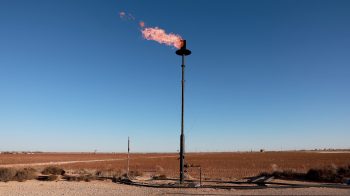China levies new tax on grain exports
TEXT OF STORY
KAI RYSSDAL: The Chinese government is ringing in the New Year by ringing up some new taxes on grain exports. As of January 1st, Beijing Standard Time, wheat growers looking to export their crops have to pony up a 20 percent tax. The duty on corn and rice has been set at 5 percent. Until not too long ago Beijing was giving farmers sizable tax rebates for their grain exports. But food prices in China have been soaring — not a good thing for a government that’s keen to avoid social unrest. And it bodes none too well for the rest of us when demand for grain around the world is rapidly outpacing supply. Marketplace’s Bob Moon has the story.
BOB MOON: China is the world’s biggest grain producer, and its harvest over the past year grew — quite literally — to more than 500 million tons. But it seems there still isn’t enough to go around for the country’s ever-growing population. So Beijing hopes to keep supplies at home and control rising inflation. Tighter global supplies could put upward pressure on prices, but industry analyst Vic Lespinasse of Illinois Grain says that could be good news for American farmers:
Vic LESPINASSE: The Chinese, especially in corn, were a big competitor with the U.S. They would export millions of tons of corn every year, taking away some traditional U.S. markets. And to that extent, it will encourage U.S. corn exports. So, U.S. farmers welcome this move.
On the other hand, Argentina and Russia are already moving to restrict their grain exports, while other countries have been buying up grain aggressively. Linn Group analyst Roy Huckabay says it all points to what he calls dangerously short supplies:
ROY HUCKABAY: If you look at wheat, corn and rice — and that covers most of your edible grains in the world — we’ve got about two months of supply at the end of the year.
And just like the scramble for oil, a tax on food exports from China now ripples throughout the the global economy.
HUCKABAY: I don’t think we ever go back to the cheap prices we had in the ’80s and ’90s. I think that turning food into fuel has started this. I mean, we saw that tightness coming. So we continue to see this tug of higher prices until we get comfortable with supplies again. And I think that comfort level is probably a couple years away.
Huckabay says with only so much farm land left, achieving that will require the use of new genetic technologies to produce bigger crop yields.
In Los Angeles, I’m Bob Moon for Marketplace.
There’s a lot happening in the world. Through it all, Marketplace is here for you.
You rely on Marketplace to break down the world’s events and tell you how it affects you in a fact-based, approachable way. We rely on your financial support to keep making that possible.
Your donation today powers the independent journalism that you rely on. For just $5/month, you can help sustain Marketplace so we can keep reporting on the things that matter to you.


















